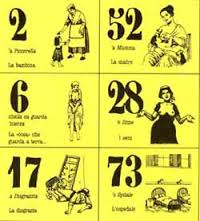Alterna fortuna. Sul dispendio del “più minuto popolo”
DOI:
https://doi.org/10.13135/2038-6788/9316Parole chiave:
Gioco d'azzardo, Lotto, Matilde Serao, Napoli, Smorfia napoletanaAbstract
Between the end of the nineteenth and the first years of the twentieth century, there have been various analyses (of a juridical, fiscal, psychological, social, empathic-literary, moralizing or more properly philosophical nature) concerning the pathological drifts of gambling. Gambling appears as a surrogate for fortune, but also for election and grace once they are inserted in a more modern context for the use of the masses. Balzac spoke of the lottery as “opium for misery” (“opium de la misère”), Karl Marx told of that very same misery defining it as typical of subjects with no possibility for redemption, the Lumpenproletariat. Perhaps more naively and yet not without its own depth, while addressing Naples as an experimentum crucis for a Europe that wished to be considered modern ahead of its times, Matilde Serao spoke of the lottery as a counterpart to the brandy that numbs the working class in Manchester and London. Raising the bar, Serao also spoke of the lottery as “spiritual cholera” and noted that not only paltry people, that is, the miserable or wretched proletariat despised by Marx was seduced by the ritualism and temporality of gambling; even the upper and idle classes (such as judges and notable people) and the hardworking members of the emerging financial capitalism (such as stockbrokers) were affected by it. This brings us back to the often unaddressed question that is central especially to George Bataille’s and Roger Caillois’ reflections, namely: gambling as “production of sacred things,” as sacrificial ritualism where fortune coincides with the very instant and space of such sacrifice.


